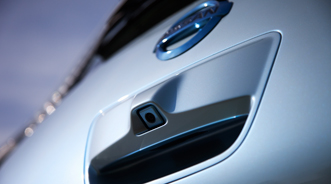Harris Poll: Hybrid & Electric Vehicles Still Face Uphill Climb for Widespread Consumer Appeal

By subscribing, you agree to receive communications from Auto Remarketing and our partners in accordance with our Privacy Policy. We may share your information with select partners and sponsors who may contact you about their products and services. You may unsubscribe at any time.
NEW YORK –
Harris Interactive acknowledges consumer consideration for vehicles with alternative powertrains is on the rise. However, its latest study shows concerns regarding infrastructure, price, driving range and maintenance continue to dampen enthusiasm about these technologies.
Those assertions are according to the 2011 AutoTECHCAST Study, released by Harris this week.
Study orchestrators believe basic barriers continue to limit widespread consideration of these technologies. They found 40 percent of consumers who are somewhat or not at all likely to consider a hybrid electric vehicle still express reservations about replacing the batteries.
Meanwhile, Harris discovered 43 percent of consumers indicate that pure electric vehicles will not travel as far as they need, representing an increase over last year when 36 percent of study participants made that statement.
When price is taken into account, the study also determined consideration for pure electric engines has more than doubled during the past year, climbing to 5 percent from 2 percent. Harris thinks that’s in-line with consideration for plug-in hybrid technology.
With plug-in hybrid technology, study authors found 5 percent of consumers say they are either extremely or very likely to consider this technology at market price compared to 4 percent a year ago.
Subscribe to Auto Remarketing to stay informed and stay ahead.
By subscribing, you agree to receive communications from Auto Remarketing and our partners in accordance with our Privacy Policy. We may share your information with select partners and sponsors who may contact you about their products and services. You may unsubscribe at any time.
Harris also learned consideration for a fuel cell vehicle increased from 4 percent in 2010 to 7 percent this year.
“While consideration is on the rise, consumers still have questions about these technologies, both financial and environmental,” explained David Duganne, Harris’ senior research director of automotive and transportation research.
“Consumers continue to take a ‘show me don’t tell me attitude.’ In order for wider adoption to occur, considerable consumer education needs to take place, and automakers need to enhance the value proposition,” Duganne continued.
Other Key Study Findings
—Although the brands do not yet have an entry in the category, Toyota and Honda are perceived by consumers as market leaders in the electric vehicle category. When asked about being leaders in plug-in hybrid technology, Harris said 51 percent of consumers identified Toyota, while 33 percent identified Honda.
For pure electric technology, 27 percent identified Toyota while 14 percent identified Honda. Nissan, which manufacturers the LEAF, was identified by 8 percent of consumers.
—Younger buyers ages 18 to 34 are far more likely to consider new technologies at market price, according to the study. They had the strongest consideration for voice activated controls and features (44 percent) and MP3/iPod audio system interface (43 percent).
For both technologies, Harris indicated consideration was at least 11 percentage points higher than those ages 35 to 54.
“These technologies are a cost of entry for younger buyers,” Harris reported. “The gap was much narrower on convenience items such as capless fueling system (27 percent versus 19 percent) and rain sensor and automatic wipers (30 percent versus 22 percent).
—Despite higher brand equity, study orchestrators believe automakers have yet to sufficiently take advantage of aftermarket navigation system brands.
Harris mentioned Garmin (84 percent), TomTom (81 percent) and Magellan (67 percent) all had significantly higher awareness among consumers than all other navigation system brands combined (48 percent).
Company Shares Study Methodology
Harris explained its U.S. AutoTECHCAST study is meant to provide OEMs and Tier 1-2-3 suppliers with in-depth U.S. consumer research on more than 60 advanced automotive technologies covering entertainment, exterior and interior comfort and convenience, glass, intelligent sensing, lighting, powertrain and alternative fuels, safety and telematics.
The 2011 AutoTECHCAST study was conducted online within the United States by Harris Interactive between April 15, 2010 and May 11 of this year among 11,567 American adults ages 18 and older.
These individuals also own or lease a vehicle, have a valid driver’s license, have at least one household vehicle, own a vehicle model year 2006 or newer and are at least 50 percent involved in the decision to buy their next household vehicle.
“Results were weighted as needed for age, gender, education, region and income and to properly represent U.S. vehicle segment owners,” Harris noted. “Propensity score weighting also was used to adjust for respondents’ propensity to be online.”


